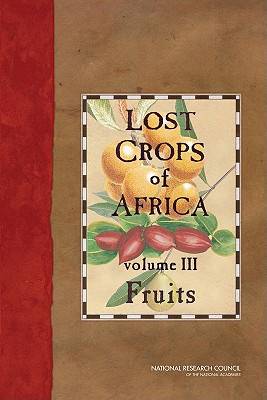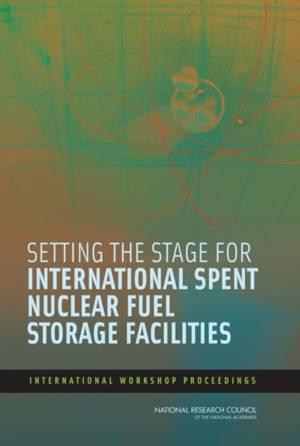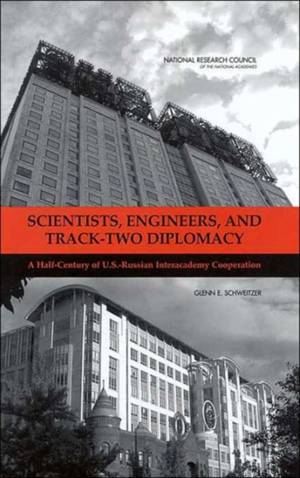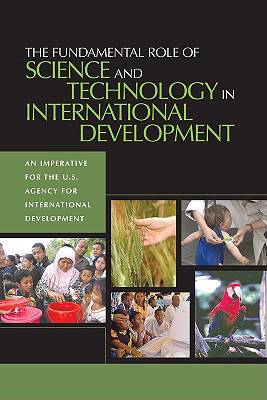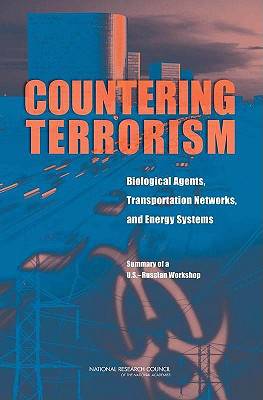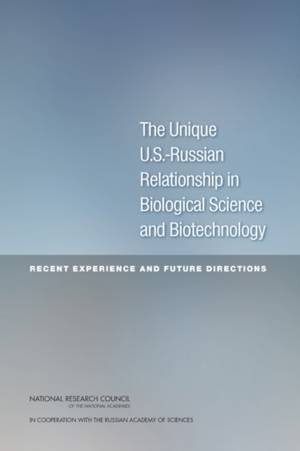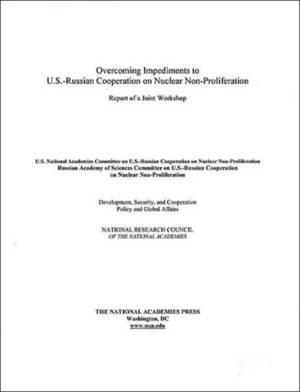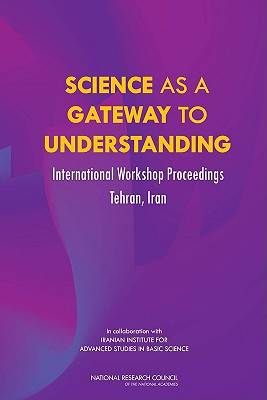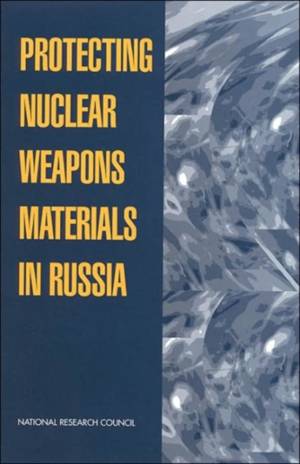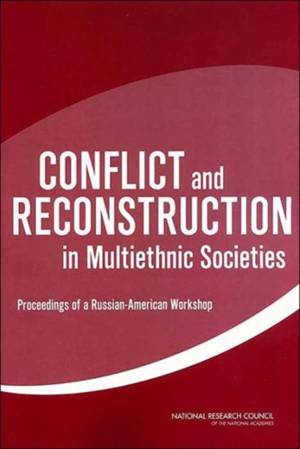
En raison d'une grêve chez bpost, votre commande pourrait être retardée. Vous avez besoin d’un livre rapidement ? Nos magasins vous accueillent à bras ouverts !
- Retrait gratuit dans votre magasin Club
- 7.000.000 titres dans notre catalogue
- Payer en toute sécurité
- Toujours un magasin près de chez vous
En raison de la grêve chez bpost, votre commande pourrait être retardée. Vous avez besoin d’un livre rapidement ? Nos magasins vous accueillent à bras ouverts !
- Retrait gratuit dans votre magasin Club
- 7.000.0000 titres dans notre catalogue
- Payer en toute sécurité
- Toujours un magasin près de chez vous
Résultats pour "Development Security and Cooperation"
-
Assessing the United States Institute of Peace Jennings Randolph Senior Fellowship
National Research Council, Policy and Global Affairs, Development Security and Cooperation, Committee to Review the United States Institute of Peace Senior
- Livre broché | Anglais
- The United States Institute of Peace (USIP) is an independent, nonpartisan, national institution established and funded by the U.S. Congress. The goal... Savoir plus
27,95 €Livraison 1 à 2 semaines27,95 €Livraison 1 à 2 semaines -
Lost Crops of Africa
National Research Council, Policy and Global Affairs, Development Security and Cooperation
- Livre broché | Anglais | Lost Crops of Africa Vol. I | n° 3
- This book is the third in a series evaluating underexploited African plant resources that could help broaden and secure Africa's food supply. The volu... Savoir plus
90,95 €Livraison sous 1 à 4 semaines90,95 €Livraison sous 1 à 4 semaines -
Setting the Stage for International Spent Nuclear Fuel Storage Facilities
National Research Council, Policy and Global Affairs, Development Security and Cooperation, Office for Central Europe and Eurasia, Committee on Issues in Consolidating Spent Nuclear Fuel at Inter
- Livre broché | Anglais
- In May 2003, the Russian Academy of Sciences and the National Academies organized an international workshop in Moscow on the scientific issues relevan... Savoir plus
32,45 €Livraison 1 à 2 semaines32,45 €Livraison 1 à 2 semaines -
Scientists, Engineers, and Track-Two Diplomacy
National Research Council, Development Security and Cooperation, Glenn E Schweitzer
- Livre relié | Anglais
- This report is intended to provide a brief historical perspective of the evolution of the interacademy program during the past half-century, recognizi... Savoir plus
37,95 €Livraison 1 à 2 semaines37,95 €Livraison 1 à 2 semaines -
Lost Crops of Africa, Volume II
National Research Council, Policy and Global Affairs, Development Security and Cooperation
- Livre broché | Anglais
- This report is the second in a series of three evaluating underexploited African plant resources that could help broaden and secure Africa's food supp... Savoir plus
68,45 €Livraison 1 à 2 semaines68,45 €Livraison 1 à 2 semaines -
The Fundamental Role of Science and Technology in International Development
National Research Council, Policy and Global Affairs, Development Security and Cooperation, Office for Central Europe and Eurasia, Committee on Science and Technology in Foreign Assistance
- Livre broché | Anglais
- In October 2003 the U.S. Agency for International Development (USAID) and the National Research Council (NRC) entered into a cooperative agreement. Th... Savoir plus
51,95 €Livraison sous 1 à 4 semaines51,95 €Livraison sous 1 à 4 semaines -
Countering Terrorism
Russian Academy of Sciences, National Academy of Sciences, Policy and Global Affairs, Development Security and Cooperation, Office for Central Europe and Eurasia, Committee on Counterterrorism Challenges for Russia and the United States
- Livre broché | Anglais
- This book presents the proceedings of the fourth U.S.-Russian interacademy workshop on the general theme of countering terrorism, which was held in Mo... Savoir plus
81,45 €Livraison sous 1 à 4 semaines81,45 €Livraison sous 1 à 4 semaines -
U.S.-Iran Engagement in Science, Engineering, and Health (2000-2009)
National Research Council, Policy and Global Affairs, Development Security and Cooperation, Office for Central Europe and Eurasia, Glenn E Schweitzer
- Livre relié | Anglais
- During the first decade of the 21st century, the National Academies, working with a number of partner organizations in Iran, carried out a program of ... Savoir plus
46,45 €Livraison sous 1 à 4 semaines46,45 €Livraison sous 1 à 4 semaines -
Urbanization, Energy, and Air Pollution in China
Chinese Academy of Sciences, Chinese Academy of Engineering, National Academy of Engineering, National Research Council, Policy and Global Affairs, Development Security and Cooperation
- Livre broché | Anglais
- In October 2003, a group of experts met in Beijing under the auspices of the Chinese Academy of Sciences, Chinese Academy of Engineering, and National... Savoir plus
85,45 €Livraison 1 à 2 semaines85,45 €Livraison 1 à 2 semaines -
Beyond 'Fortress America'
National Research Council, Policy and Global Affairs, Development Security and Cooperation, Committee on Scientific Communication and National Security, Committee on Science Security and Prosperity
- Livre broché | Anglais
- The national security controls that regulate access to and export of science and technology are broken. As currently structured, many of these control... Savoir plus
65,95 €Livraison sous 1 à 4 semaines65,95 €Livraison sous 1 à 4 semaines -
Roots and Trajectories of Violent Extremism and Terrorism
National Academies of Sciences Engineering and Medicine, Policy and Global Affairs, Development Security and Cooperation, Glenn E Schweitzer
- Livre relié | Anglais | Nchrp Report
- During the past 25 years, the U.S. National Academies of Sciences, Engineering, and Medicine, in collaboration with the Russian Academy of Sciences, h... Savoir plus
46,45 €Livraison 1 à 2 semaines46,45 €Livraison 1 à 2 semaines -
U.S. and International Perspectives on Global Science Policy and Science Diplomacy
National Research Council, Policy and Global Affairs, Development Security and Cooperation, Committee on Global Science Policy and Science Diplomacy
- Livre broché | Anglais
- The United States and other countries around the world face problems of an increasingly global nature that often require major contributions from scie... Savoir plus
40,95 €Livraison 1 à 2 semaines40,95 €Livraison 1 à 2 semaines -
Cleaning Up Sites Contaminated with Radioactive Materials
Russian Academy of Sciences, National Research Council, Policy and Global Affairs, Development Security and Cooperation, Office for Central Europe and Eurasia, Committee on Cleaning Up of Radioactive Contamination Russian Challenges and U S Experience
- Livre broché | Anglais
- This publication features papers presented at the Workshop on Cleaning Up Sites Contaminated with Radioactive Materials, held in Moscow in June 2007. ... Savoir plus
79,95 €Livraison 1 à 2 semaines79,95 €Livraison 1 à 2 semaines -
Science and Technology in Kazakhstan
National Research Council, Policy and Global Affairs, Development Security and Cooperation, Office for Central Europe and Eurasia, Committee on Science and Technology in Kazakhstan
- Livre broché | Anglais
- Kazakhstan has an ambitious program to increase its technological competitiveness in the global market place during the next few years, but achieving ... Savoir plus
53,45 €Livraison sous 1 à 4 semaines53,45 €Livraison sous 1 à 4 semaines -
The Unique U.S.-Russian Relationship in Biological Science and Biotechnology
Russian Academy of Sciences, National Research Council, Policy and Global Affairs, Development Security and Cooperation, Committee on U S -Russia Bioengagement
- Livre broché | Anglais
- In the fall of 2010, the U.S. National Academies (consisting of the National Academy of Sciences, the National Academy of Engineering, and the Institu... Savoir plus
62,95 €Livraison sous 1 à 4 semaines62,95 €Livraison sous 1 à 4 semaines -
A Survey of Attitudes and Actions on Dual Use Research in the Life Sciences
American Association for the Advancement of Science, National Research Council, Division on Earth and Life Studies, Board on Life Sciences, Policy and Global Affairs, Development Security and Cooperation, Committee on Assessing Fundamental Attitudes of Life Scientists as a Basis for Biosecurity Education
- Livre broché | Anglais
- The same technologies that fuel scientific advances also pose potential risks--that the knowledge, tools, and techniques gained through legitimate bio... Savoir plus
102,45 €Livraison sous 1 à 4 semaines102,45 €Livraison sous 1 à 4 semaines -
Russian Views on Countering Terrorism During Eight Years of Dialogue
Russian Academy of Sciences, National Research Council, Policy and Global Affairs, Development Security and Cooperation, Office for Central Europe and Eurasia
- Livre broché | Anglais
- Few countries have endured as many attacks of terrorism during the past two decades as has Russia. From bombings on the streets of a number of cities,... Savoir plus
111,95 €Livraison 1 à 2 semaines111,95 €Livraison 1 à 2 semaines -
Overcoming Impediments to U.S.-Russian Cooperation on Nuclear Nonproliferation
National Research Council, Policy and Global Affairs, Development Security and Cooperation, Russian Academy of Sciences Committee on U S -Russian Cooperatio, U S National Academies Committee on U S -Russian Cooperation on
- Livre broché | Anglais
- The U.S. National Academies and the Russian Academy of Sciences convened a joint workshop to identify methods of overcoming impediments to cooperation... Savoir plus
32,45 €Livraison 1 à 2 semaines32,45 €Livraison 1 à 2 semaines -
An International Perspective on Advancing Technologies and Strategies for Managing Dual-Use Risks
National Research Council, Institute of Medicine, Board on Global Health, Policy and Global Affairs, Development Security and Cooperation, Committee on Advances in Technology and the Prevention of Their
- Livre broché | Anglais
- As part of a study of current and future research in the life sciences that contains applications relevant to development of agents of biological orig... Savoir plus
58,95 €Livraison sous 1 à 4 semaines58,95 €Livraison sous 1 à 4 semaines -
Science as a Gateway to Understanding
National Research Council, Policy and Global Affairs, Development Security and Cooperation, Office for Central Europe and Eurasia
- Livre broché | Anglais
- In October 2007, the U.S. National Academies and the Iranian Institute for Advanced Studies in Basic Science organized the first of a series of planne... Savoir plus
62,95 €Livraison sous 1 à 4 semaines62,95 €Livraison sous 1 à 4 semaines -
Terrorism: Reducing Vulnerabilities and Improving Responses
Russian Academy of Sciences, National Research Council, Policy and Global Affairs, Development Security and Cooperation, Office for Central Europe and Eurasia, Committee on Counterterrorism Challenges for Russia and the Unit
- Livre broché | Anglais
- This book is devoted primarily to papers prepared by American and Russian specialists on cyber terrorism and urban terrorism. It also includes papers ... Savoir plus
69,95 €Livraison sous 1 à 4 semaines69,95 €Livraison sous 1 à 4 semaines -
Protecting Nuclear Weapons Material in Russia
National Research Council, Policy and Global Affairs, Development Security and Cooperation, Office of International Affairs
- Livre broché | Anglais | Compass Series
- The management challenge in orchestrating a multitude of DOE headquarters, laboratory, and contractor personnel at about 50 sites in Russia is dauntin... Savoir plus
20,95 €Livraison 1 à 2 semaines20,95 €Livraison 1 à 2 semaines -
Conflict and Reconstruction in Multiethnic Societies
Russian Academy of Sciences, National Research Council, Policy and Global Affairs, Development Security and Cooperation, Office for Central Europe and Eurasia, Committee on Conflict and Reconstruction in Multiethnic Societie
- Livre broché | Anglais
- This report is the proceedings of a December 2001 international symposium in Washington, DC organized by the National Academies and the Russian Academ... Savoir plus
48,95 €Livraison 1 à 2 semaines48,95 €Livraison 1 à 2 semaines -
Mobilizing Science-Based Enterprises for Energy, Water, and Medicines in Nigeria
National Research Council, Policy and Global Affairs, Development Security and Cooperation, Committee on Creation of Science-Based Industries in Developing
- Livre broché | Anglais
- Developed in collaboration with the Nigerian Academy of Science, this report explores the ways in which science-based private enterprises can be creat... Savoir plus
33,95 €Livraison 1 à 2 semaines33,95 €Livraison 1 à 2 semaines






